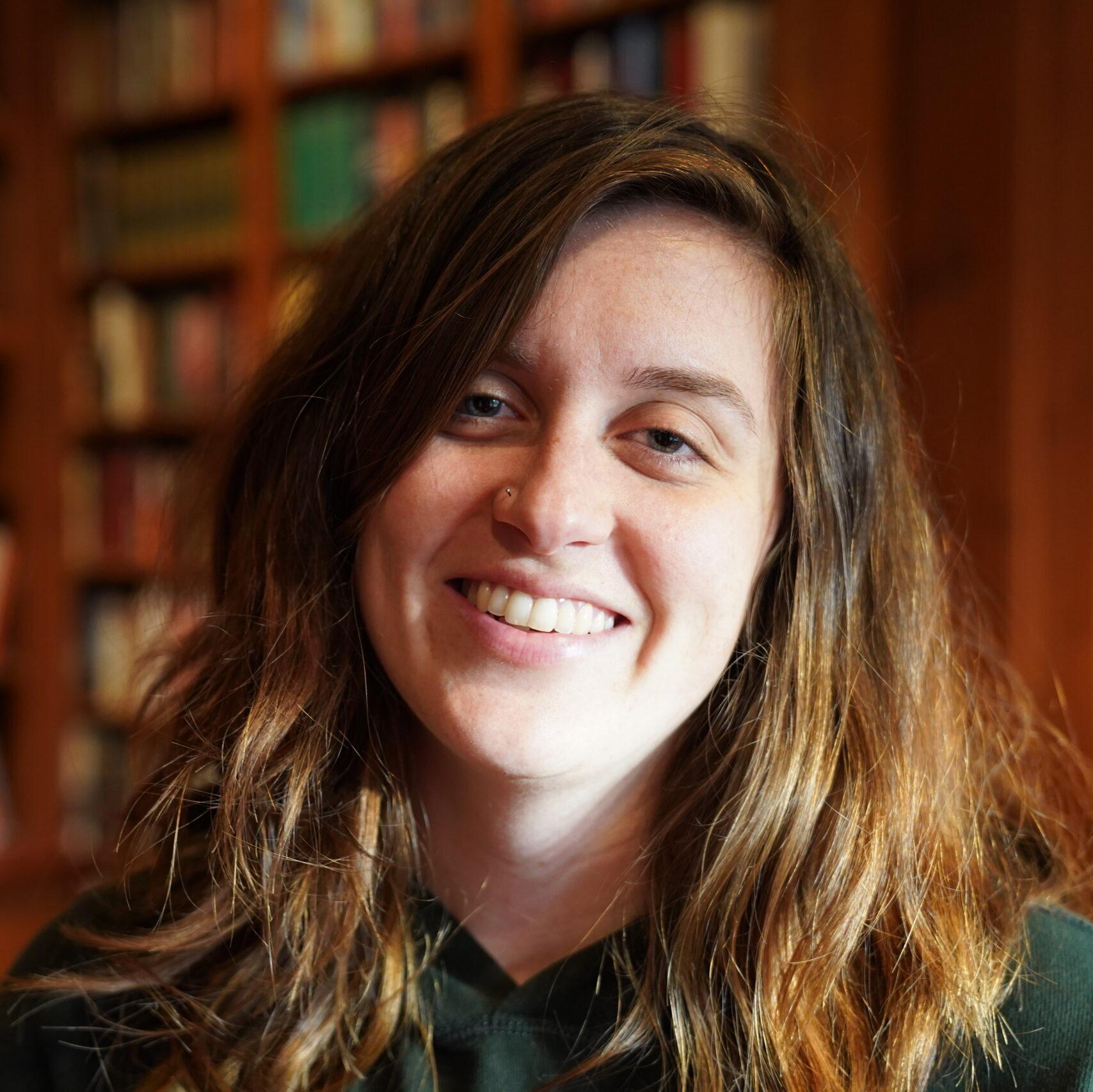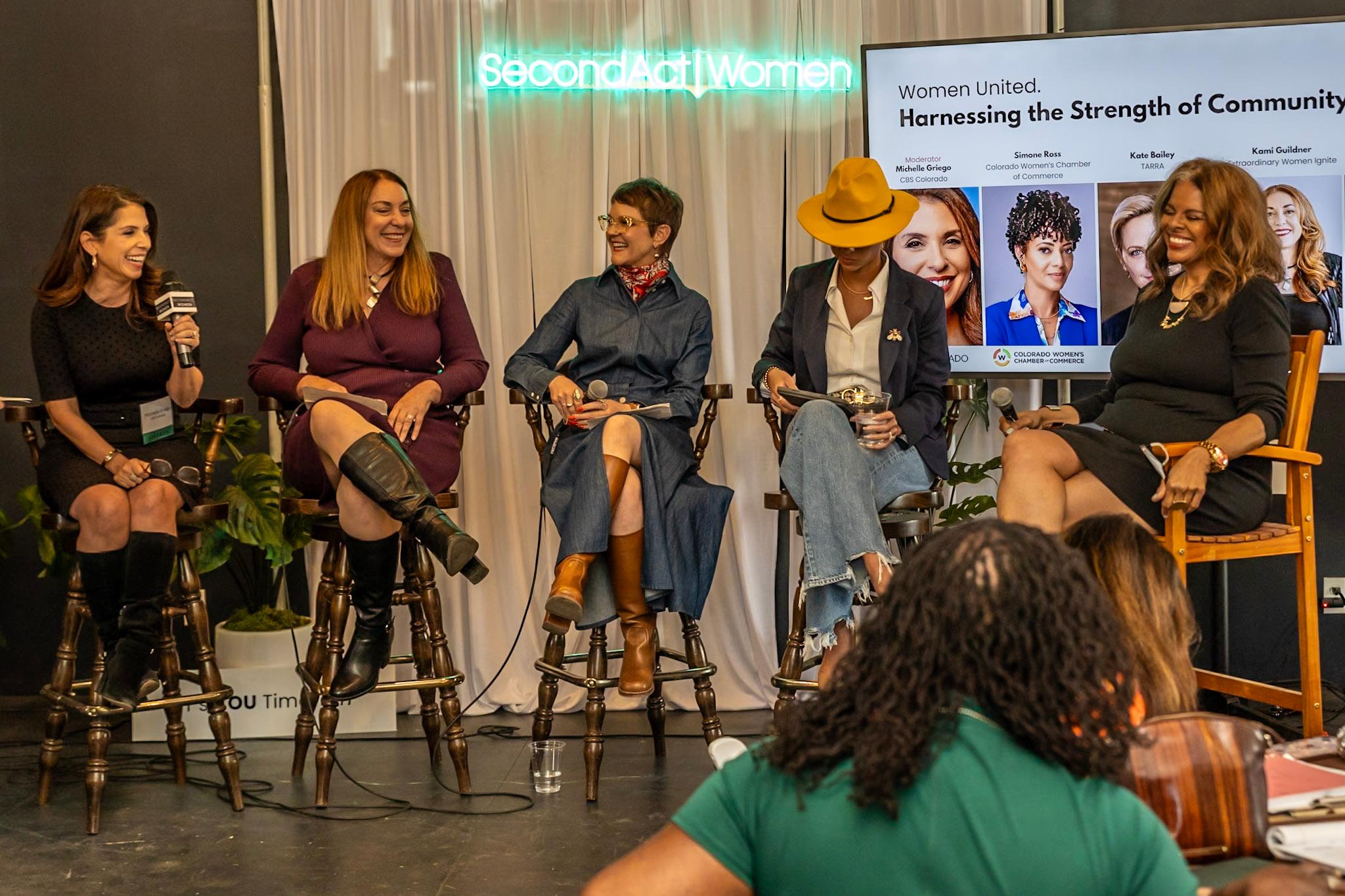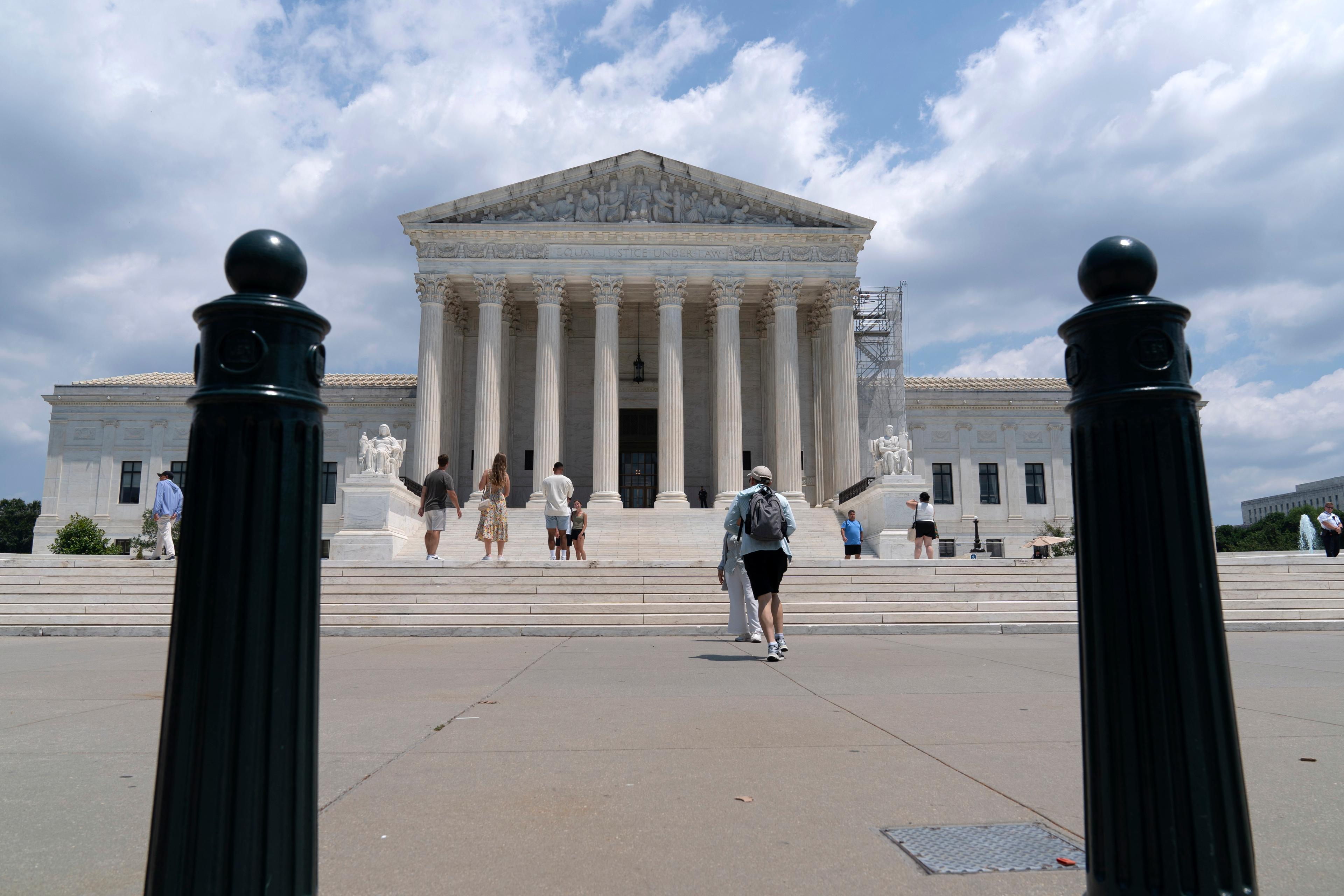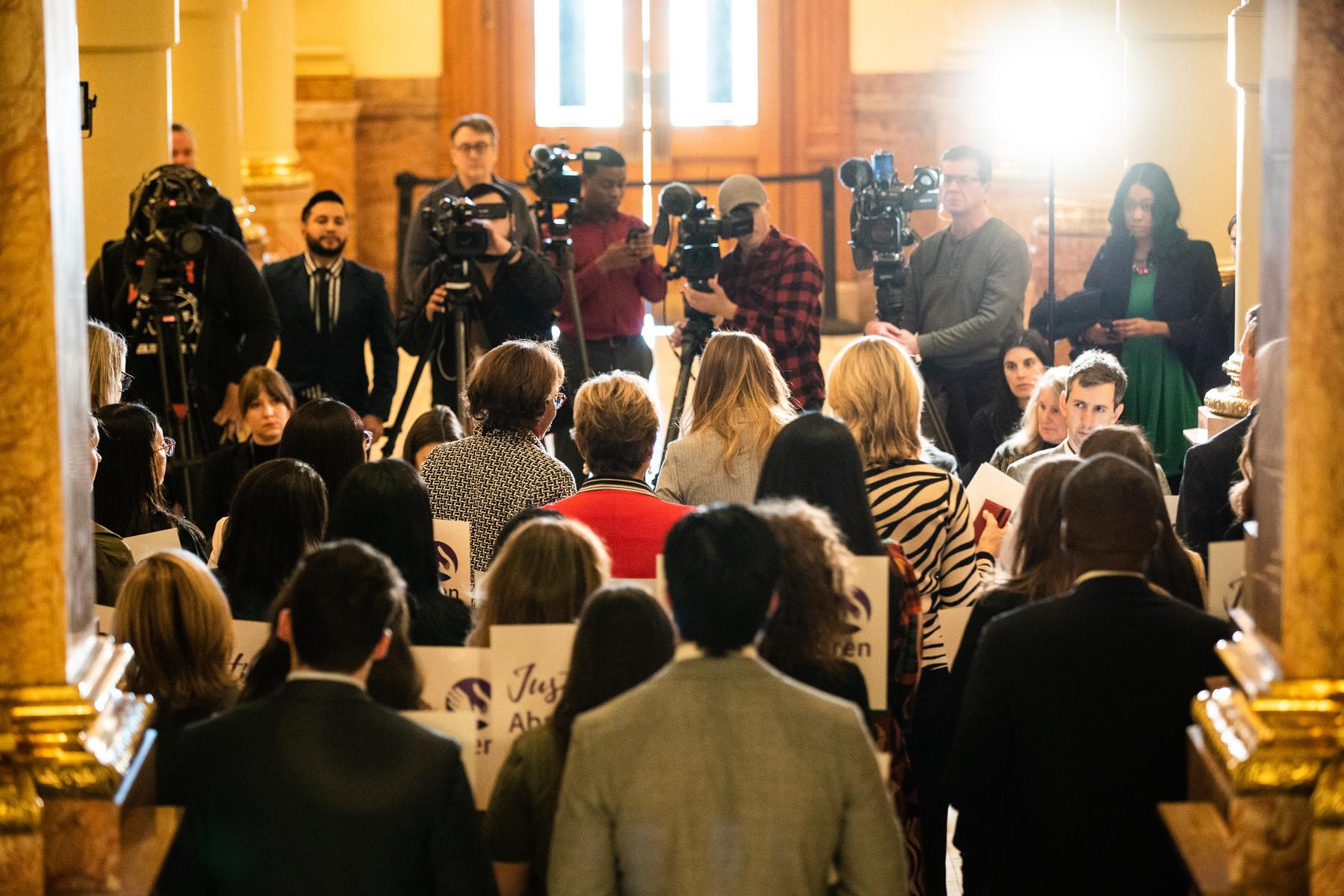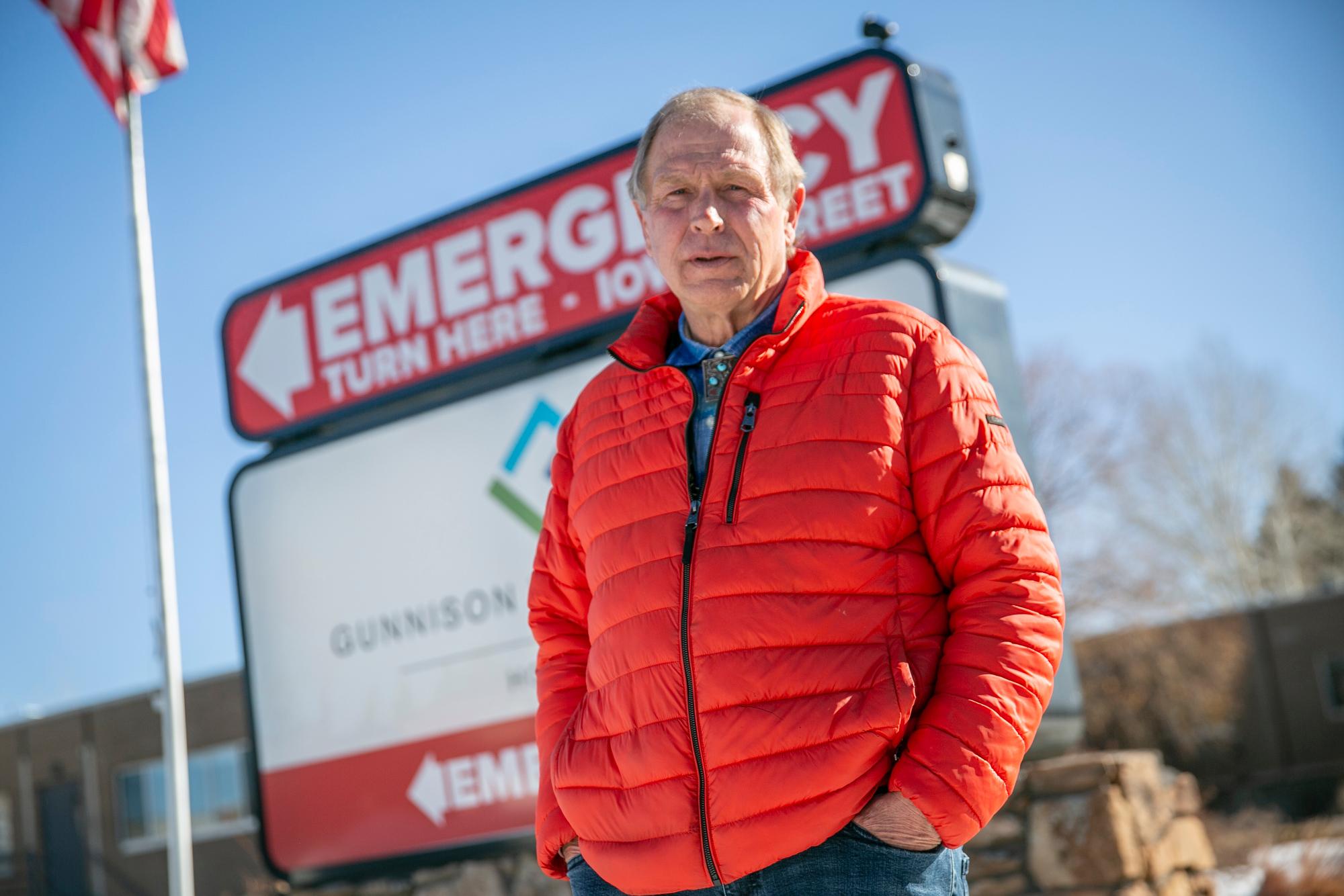
Not far from downtown Gunnison in a repurposed house, Joe Petersen sat at a desk in his spacious, sunlit home office. Petersen is 64 years old and tall with grayish-brown hair, thick-rimmed glasses, and soft eyes.
On a typical day this winter, he would keep an eye on his computer screen, watching virtually as doctors, who were just across the street at Gunnison Valley Health Hospital’s emergency room, updated patient notes.
Most of the notes would be nothing out of the ordinary — a sprained wrist, someone with chest pain. And then: “32 years old, male; Chief complaint: Suicidal ideation.” This was his cue to head to the ER.
For the past two years, Petersen has worked as a peer support specialist. He helps people who come into the ER because of suicidal thoughts, a suicide attempt, a drug overdose or other mental health concerns.
“I’m the first line of defense,” he explained. “The goal is to get them thinking about life again and the benefits of getting help.”
If you need help, dial 988 to reach the Suicide and Crisis Lifeline. You can also reach the Colorado Crisis Services hotline at 1-844-493-8255 or text “TALK” to 38255 to speak with a trained counselor or professional. Counselors are also available at walk-in locations or online to chat.
Suicide has been a well-known issue here for a long time. Over the last two decades in Gunnison County — a region with just over 17,400 people that encompasses Gunnison and 15 surrounding towns — 83 people have taken their lives, the majority of which were working-age men. According to the Colorado Department of Public Health and Environment, this rural county’s suicide rate is more than 30 deaths per 100,000 people — more than twice the national average.
Now, as the COVID-19 pandemic rattles the economy and stresses the county’s few mental health resources, substance abuse and suicide have become an even bigger concern in Gunnison. Everybody coming into the ER with a mental health crisis is “in one way or another affected by COVID,” Petersen said.
“People are reaching their breaking point more and more. They held on, but by their fingernails, and now they are falling.”
Yet during this trying time, there is a glimmer of hope: Long-time Gunnison locals like Petersen are stepping up to save their neighbors from mental health crises and deaths by suicide and, in doing so, protect their town.
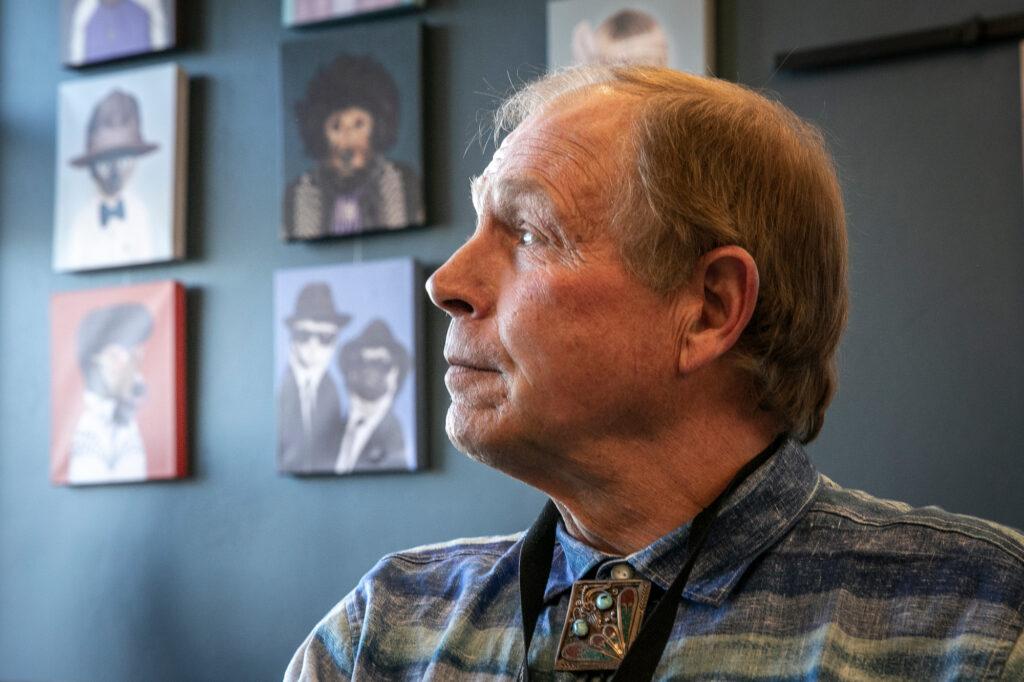
'I really don’t want to die, but I don’t want to keep living the way I’m living'
In the United States, suicide is the tenth leading cause of death, and men are almost four times more likely to die by suicide than women. Of those, men aged 25 to 54 years old are particularly vulnerable and 54 percent of people who die by suicide do not have a known mental health condition.
For Petersen, these are more than just statistics. He grew up in the Denver suburb of Arvada with two younger siblings, a mother, and an alcoholic father. With the fridge always stocked with beer, Petersen started drinking at 10 years old and then moved onto drugs, including cocaine, hallucinogens and benzodiazepines.
“It would be hard to tell you what drugs I didn’t use,” he said.
In 1978, he moved to Gunnison to attend Western State College of Colorado, now Western Colorado University. However, it took him 32 years to graduate, and in the meantime, Petersen got married, had a family and moved to Montana and Washington.
During his marriage, drugs were a central part of Petersen’s life.
“Rather than dealing with problems I’d just keep overmedicating,” he said.
That put a strain on his relationship, eventually leading to a divorce in 1999.
In 2016, Petersen was back in central Colorado working in maintenance in Crested Butte, when he fell off a roof. Not long after, he fell down a flight of stairs, injuring both of his shoulders.
It took months of little to no sleep and multiple surgeries for Petersen to start physically recovering. But the inactivity and uncertainty about his future took a significant mental toll, and shortly after the surgeries, he attempted suicide.
When he woke up the next morning, he had an important realization: “I really don’t want to die, but I don’t want to keep living the way I’m living,” he said, reflecting on it now.
For the next three and a half years, Petersen attended intensive therapy and slowly recovered. He also received training through the Colorado Mental Wellness Network to become a peer support specialist, which requires trainees to have lived experience with substance use or other mental health conditions. Research has shown that peer specialists are effective in many instances at empowering patients suffering from mental illness.
These positive findings, and decades of failing to reduce deaths by suicide in the area, spurred Gunnison Valley Health Hospital to start a peer support specialist program. In February 2019, the hospital hired Petersen as its first specialist.
During the weeks now, Petersen works 10-hour days and then is on call throughout the night. Even if it’s 2 a.m., he told the hospital staff, “Don’t worry about waking me up, just make the call.”
One Monday morning in early February, Petersen was called into the ER to help a woman who was pressured by her spouse to go off her psychiatric medications, which resulted in her abusing alcohol and drugs.
“[I] kind of have a goal to talk about their strengths, build on their strengths and plant the seed of hope. Assure them that they are not the only person who has gone through something like this and that recovery is possible,” Petersen said.
Sometimes he refers patients to get a mental telehealth assessment by professionals at a community organization in Montrose that serves the Western Slope. Patients can also be put on a 72-hour emergency hold in Montrose or Grand Junction. Petersen almost always starts by telling patients about his own experiences with drugs and suicide.
“As soon as people know that I’m not a cop, a doctor, a nurse, a psychiatrist, the reason I’m here is because it wasn’t that long ago that I was in that bed, that it makes them feel better,” he said.
That Monday, in addition to sessions with his regular clients, he saw three new patients and had a 19-hour workday.
Unfortunately, days like this are becoming more common: In 2020, the number of people coming into the local ER for issues including anxiety, suicide attempts, and opioid abuse increased by 500 percent, going from an average of two admissions each month to 12, according to data from Gunnison Valley Health Hospital.
Comfort food
Other Gunnison locals are also trying to help their neighbors through this unprecedented time. Less than a mile from the hospital between a diner and a bike shop on Main Street sits the Firebrand Delicatessen.
One morning in early February, Heidi Magnus stood inside the deli behind a sheet of plexiglass covered with pictures of friends; a Live, Love, Local poster; and a sign that read “Pay Here.” The deli is usually packed with lunchtime customers. People can’t dine inside, but the front half of the store is still open for takeout.
Since 1995, Magnus has operated the deli alongside her sister, Kate. Like many people, Magnus has experienced brief bouts of depression, but it wasn’t until she lost a friend to suicide in 2018 that she started thinking about why people fall into despair and choose suicide. She also wondered how she could help others avoid the same fate.

Soon after her friend’s passing, she attended a safeTALK training, which teaches people how to recognize when someone might be thinking about suicide and connect them to professional help.
Now, Magnus keeps her eyes and ears perked for people who may be feeling lost — whether it’s a passing comment at the register or a regular customer no longer showing up.
“When I opened up this place with my sister, I started learning that everybody has a story, and you’re lucky if you get to hear it,” she said.
“It’s really easy for people to come in and feel seen and feel heard and feel safe in this space.”
Once Magnus started openly talking about suicide, more people felt comfortable being honest with her. She recalled one time she went on a walk with a friend and, after she got home, replayed everything he had said. It was then that Magnus thought, “Wow, those are the kinds of things that somebody might say if they were thinking about suicide.”
She immediately called her friend and asked if he was having thoughts about suicide. He responded, “I was trying to tell you the whole time.”
Luckily, this friend is still alive today. It’s moments like these that make Magnus think about the friend she lost four years ago.
“I can’t go back in time and save my friend,” she said, but she can keep her antennas up for others who are struggling.
The suicide crisis in Gunnison reflects a larger trend across the Rocky Mountain West. Studies have suggested that the high altitude in mountain towns leads to lower blood oxygen and serotonin levels, which contribute to depression and suicidal thoughts.
But other health professionals think the high rates of gun ownership, lack of jobs and mental health care in rural areas, and “rugged individualism” are bigger contributors.
The COVID-19 pandemic has exacerbated some of these issues. A growing number of people nationwide are suffering from anxiety, depression, and substance abuse.
It all looks familiar to Sally Spencer-Thomas, a clinical psychologist in Denver who lost her brother to suicide in 2004. This prompted her to spend almost two years interviewing men who survived their own suicide attempts. She also conducted focus groups in collaboration with the CDPHE and Cactus, a Denver-based ad agency.
Through this, she found that the majority of individuals who were dying by suicide were men who never reached out for help.
“They were falling through the cracks,” Spencer-Thomas said. “They were white-knuckling it through overwhelming pain and despair, and then they were having just one suicide attempt and it was fatal.”
She also discovered that the conventional therapy method needed to change.
“First of all, the mental health language that most mental health professionals used seems very clinical, dry and medicalized,” she said. “They also told us that they were far more likely to hear from a peer — someone who had walked in their shoes (rather) than someone with a whole bunch of degrees after their name.”
In other words, someone like Petersen or Magnus.
In 2012, Spencer-Thomas launched Man Therapy, an online resource that uses humor and a fictional character named Dr. Rich Mahogany to make talking about mental health more approachable.
“Did you know that men have feelings too? No, not just the hippies — all of us! Hello, I’m Dr. Rich Mahogany. Welcome to Man Therapy,” he says in a room filled with leather-bound books, baseball trophies, and a mounted moose head.
Over the past nine years, Man Therapy has taken off and is licensed in dozens of counties and states, along with Australia. There have been over 1.2 million visits to the website and 375,000 people have completed the online screening questionnaire for depression, anxiety, substance use and anger, according to Spencer-Thomas.
With the pandemic, Spencer-Thomas thinks Man Therapy is more crucial than ever.
“It’s so essential right now because it’s something you can access on your device, in your computer, in the privacy of your own home and get on a pathway for healing and recovery,” Spencer-Thomas said.
A new chapter for Gunnison
Over the past couple years, Gunnison’s peer support specialist program has also grown significantly; since Petersen was hired, they’ve brought on another specialist and a licensed professional counselor as the program’s director. They are also planning to hire two more specialists this year.
The team has their own building with office space, a conference area, and a backyard where clients can meet up and chat with specialists. Before, they had to borrow office space in the hospital.
Eventually, Petersen hopes to host barbecues and cornhole games to give people in recovery a space to connect.
“It is so much nicer than anything we had in the past,” Petersen said. “This is really exciting for us.”
But there are still gaps that need to be filled. Long term, Petersen wants the program to include outpatient services like group therapy and sober living homes, both of which are essential for patients who are discharged from Montrose or Grand Junction but don’t have anywhere to go.
“The breakdown still comes from when people get released and they send them home without a plan,” Petersen said.
It’s too early to tell if the program is working, but Petersen has noticed fewer repeat patients coming into the ER. Hopefully, he said, that means that the addition of peer support specialists is expediting the recovery process.
This job is also crucial for Petersen, who recalls how he was in his clients’ shoes not too long ago.
“First off, it gave me a purpose in life,” Petersen said while choking up. “The best place I can be for my mental health is at this job helping others.”
